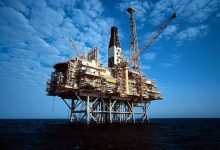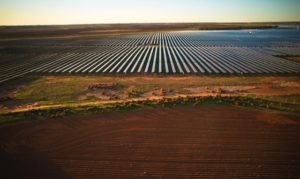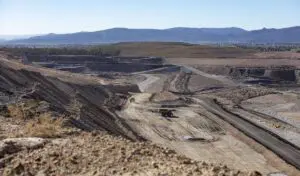Seven days. That is how long it took for Western Australia’s Environmental Protection Authority to capitulate to the state Labor government – which had already capitulated to fossil fuel lobby groups – and agree to drop its push to actually do something to regulate emissions-intensive resources projects in the state.
On Thursday afternoon, after a “crisis” meeting with Premier Mark McGowan and a bunch of jolly annoyed mining executives, the W.A. EPA reportedly withdrew its guidelines requiring major WA resources projects to completely offset their greenhouse gas emissions.
As the timeline below illustrates, the action was swift and brutal. Not content to take the Scout’s Honour of McGowan that he would ignore the EPA’s attempted attention to scientific detail, federal Coalition MPs and resource industry heavyweights demanded all evidence of the “brain explosion” be wiped from the annals of history – lest it should upset investors.
— Australasian Centre for Corporate Responsibility (@AustCCR) March 14, 2019
As ABC Online reports it, McGowan rang the EPA’s chairman Tom Hatton after the Thursday morning meeting, and then announced shortly afterwards that the EPA had informed him it would be withdrawing the guidelines while it consulted further with industry.
Of Hatton – who just a week earlier had talked of setting a “higher bar” for how the environmental watchdog would assess the impact of major new projects, in light of Australia’s obligations under the Paris climate agreement – McGowan had this to say:
“He’s a very good scientist and very committed to the environment, but he understood there were major issues that need to be dealt with.”
For his part, Hatton has said the EPA is not backing down on its climate stance, nor cow-towing to government and big business.
“The EPA does not resile at all from giving advice to the government on the implications of any project that might impact the environment of the state … nothing has changed there,” he said.
“We remain independent in terms of what we do with that information … We are concerned about climate change, we’re concerned about the impacts it has in this state, and we’re concerned about Australia’s emissions.”
But he did concede that there was work to be done on communicating clearly and effectively with industry about such touchy issues as their massive, unchecked emissions.
“There’s a bit of confusion [on the part of business] over what the guidelines mean, their interpretation. So that needs to be clarified,” Hatton told the ABC.
“That’s not about money, not about cost, it’s about the availability of offsets, the recognition of offsets by the Commonwealth, technical issues like that, which merit further discussion.”
Certainly, it is not about cost. As The Australia Institute’s Richie Merzian put it on Twitter, it would be “easy and affordable” for major gas companies to pay for their carbon pollution under the EPA’s proposed guideline. Just 2 per cent of cash profits would cover two big gas projects in the case of Chevron, he said.
It would only cost Chevron 2% of is cash profits to offset its massive emissions from its two big gas projects in WA.
It would be easy and affordable for @Chevron to pay for its carbon pollution, in line with the WA EPA guidelines.
In @smh @WAtodayhttps://t.co/J0ndjBUGfo
— Richie Merzian (@RichieMerzian) March 13, 2019
Chevron paid $248 tax in 2014-15 on $1.7b profit. The WA EPA carbon offset policy would cost about 2% of their $32 million per day profit. Meeting the offsets could have created 1000s of jobs. No wonder kids are out on the streets. #ClimateStrike #wapol https://t.co/7agVJMdYKk
— Nicole Hodgson (@honeymyrtle) March 15, 2019
And as we reported here yesterday, Macquarie Group analysis found that the W.A. EPA had come up with “a solid compromise to treat carbon emissions” – which it also noted could no longer be ignored.
But if the problem of emissions can’t be ignored, the lesson from Australian politics this week is that it can be shouted down easily enough.
If you want to see how power really works in this country, have a look at what happened when the WA EPA proposed carbon limits on new resource developments https://t.co/kbCU1C772t via @smh
— Ben Eltham (@beneltham) March 14, 2019










